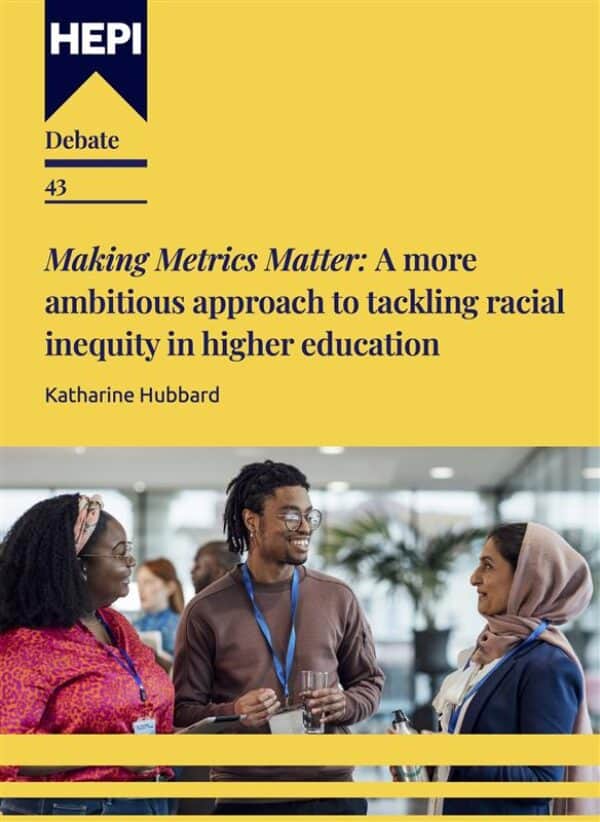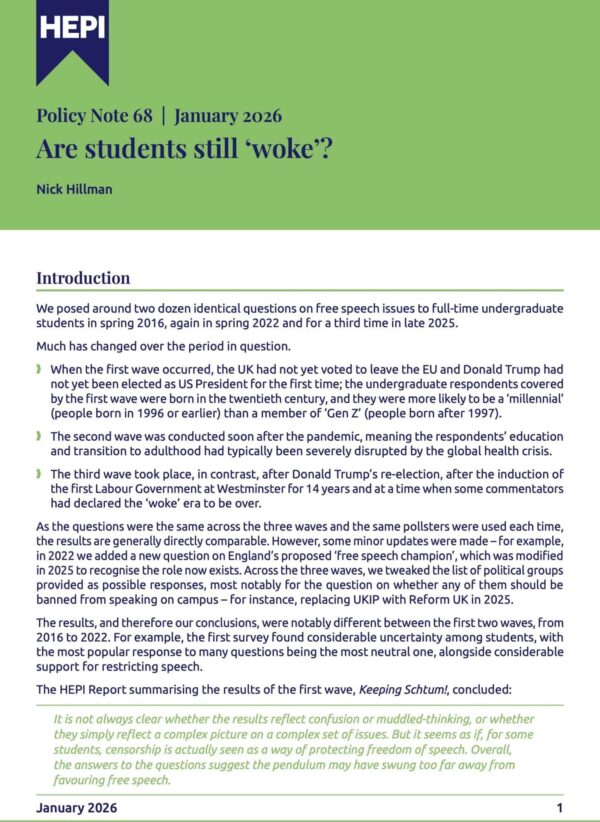WEEKEND READING: Building the transatlantic cyber bridge: what ‘Careers-First’ really means for the future workforce
This blog was kindly authored by Professor Paul Marshall, Vice-President (Global Campus) and Pro-Vice-Chancellor (Careers & Enterprise), University of East London.
As the UK Government prepares its long-awaited White Paper on the future of higher education, it is timely to reflect on the purpose and impact of our universities. At their best, they are not simply sites of knowledge creation – they are instruments of national capability. Few challenges illustrate that more vividly than cybersecurity.
When I joined a panel at the CyberBay Cybersecurity Conference in Tampa earlier this month, Dr Richard Munassi, Managing Director of Tampa Bay Wave, opened with a warning that set the tone for the discussion:
We are in a cyber war – a war waged by well-financed, state-backed criminal organisations so sophisticated that they have their own HR divisions.
He was right. Earlier this year, Jaguar Land Rover was forced to suspend production after a ransomware attack that rippled across its global supply chain. The UK Government’s intervention – with a support package approaching £1.5 billion – made clear that cybersecurity is not an IT issue; it is economic infrastructure.
As the sector awaits the Government’s vision for the future, one truth already stands out: higher education must not only prepare individuals for work – it must prepare the nation for risk.
At the University of East London (UEL), that challenge sits at the heart of our institutional strategy, Vision 2028, which seeks to transform lives through education, innovation, and enterprise. The strategy’s organising principle – Careers-First – redefines employability as capability.
Rather than positioning careers as an outcome of study, it embeds professional practice, enterprise, and resilience into every degree and partnership. The test for every programme is simple: does it equip our students to adapt, contribute, and lead in industries defined by constant change?
Nowhere is this approach more tangible than in cybersecurity. Our BSc Cyber Security & Networks, MSc Information Security & Digital Forensics, and Cyber Security Technical Professional Degree Apprenticeship all combine rigorous academic study with live, industry-based application.
Students work directly with BT, IBM, Fujitsu, and Ford, tackling real-time challenges in threat analysis, data forensics, and network defence. By the time they graduate, they are not simply work-ready — they are work-proven, having contributed to the resilience of the very sectors they will soon join.
The results speak for themselves:
- With Siemens UK, students tested firmware vulnerabilities in industrial systems, informing Siemens’ internal training programmes.
- With Barclays Eagle Labs, they created a fraud-analysis dashboard now in pilot testing.
- With NHS Digital, they developed a ransomware-simulation tool to train hospital teams in incident response.
Each collaboration demonstrates a single idea: learning is most powerful when it changes the world beyond the classroom.
UEL’s Institute for Connected Communities (ICC), led by Professor Julia Davidson OBE, anchors this model in research excellence and policy leadership. The ICC brings together computing, criminology, psychology, and social science to examine the human, technical, and organisational dimensions of online safety.
Its research informs the UK Council for Internet Safety, Ofcom, UNICEF, and multiple international governments. Through projects such as Global Kids Online, ICC research directly shapes teaching, ensuring that our graduates understand not only how to secure systems, but why digital trust matters to society.
As policymakers consider the future role of universities in the forthcoming White Paper, the ICC already provides a working example of how academic research translates into practical and regulatory impact.
The White Paper will also need to consider how global collaboration strengthens national capability. UEL’s Global Campus model demonstrates how this can work in practice — connecting students and employers across India, Greece, Egypt, and the United States to create shared pathways for study, innovation, and employment.
Our developing partnership with Tampa Bay Wave, framed within the UK–Florida Memorandum of Understanding (2023), offers one illustration. We are building both virtual and physical experiences that will enable UEL students to engage with Florida’s growing cybersecurity and fintech ecosystem through mentoring, live projects, and placements, while providing a London base for US start-ups entering the UK market.
A genuine transatlantic bridge is being constructed – designed for movement in both directions, connecting students, researchers, and entrepreneurs to co-create secure-by-design technologies and governance frameworks. It is the Careers-First model, scaled globally.
The next phase of cybersecurity will occur where AI, data, and physical systems converge. Attacks will target intelligent infrastructure – transport grids, hospitals and manufacturing. UEL is already embedding these challenges into its curriculum, guided by ICC research. Students design adversarial-AI tests, examine supply-chain vulnerabilities, and develop frameworks for organisational resilience.
This approach recognises that technology evolves faster than any static syllabus. Students are therefore treated as co-creators, working alongside academics and employers to design the solutions industry will need next.
As the UK Government prepares its White Paper, one principle should underpin the national conversation: universities are not peripheral to resilience – they are central to it. They educate the workforce, generate the research, and sustain the partnerships that keep the nation secure.
UEL’s Careers-First model, aligned to Vision 2028, embodies that principle. It fuses employability, enterprise, and global engagement into one coherent system of capability. Our collaboration with Tampa Bay Wave is a single, tangible expression of this – connecting East London’s lecture theatres to innovation ecosystems across the Atlantic.
In a global cyber war, the question is not whether universities should respond, but how fast they can. At UEL, that response is already underway – this is what Careers-First looks like.







Comments
Add comment